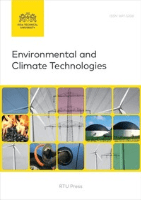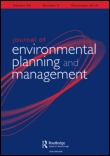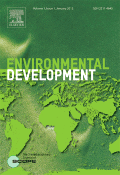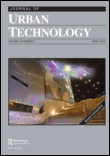
Sustainability
Scope & Guideline
Driving Change through Open Access Sustainability Research
Introduction
Aims and Scopes
- Interdisciplinary Research on Sustainability:
The journal publishes research that spans multiple disciplines, including environmental science, economics, sociology, and engineering, to address sustainability challenges comprehensively. - Sustainable Development Goals (SDGs) Alignment:
Research articles often align with the UN Sustainable Development Goals, focusing on practical solutions and policies that can be implemented to achieve these global targets. - Innovative Solutions and Technologies:
The journal emphasizes the development and application of innovative technologies and practices that contribute to sustainability in various sectors such as energy, agriculture, urban planning, and waste management. - Policy Analysis and Governance:
Many studies evaluate the effectiveness of policies and governance frameworks related to sustainability, providing insights into how regulations and institutional arrangements can influence sustainable practices. - Socio-Economic Impacts of Environmental Changes:
Research often explores the socio-economic implications of environmental changes and sustainability practices, assessing impacts on communities, industries, and ecosystems. - Community Engagement and Public Participation:
The journal highlights the importance of community involvement and stakeholder engagement in sustainability initiatives, showcasing participatory approaches that empower local populations.
Trending and Emerging
- Digital Transformation and Sustainability:
There is a growing focus on how digital technologies, including AI and IoT, can enhance sustainability practices across various sectors, facilitating more efficient resource management and decision-making. - Circular Economy Practices:
Research on circular economy models and practices is increasingly prominent, emphasizing waste reduction, resource efficiency, and sustainable production and consumption. - Climate Change Adaptation Strategies:
As climate change impacts become more apparent, research on adaptation strategies that communities and industries can adopt to mitigate its effects is gaining traction. - Social Equity and Environmental Justice:
Emerging studies examine the intersection of social equity and sustainability, focusing on how environmental policies can address inequalities and promote inclusive practices. - Sustainable Urban Development:
There is a notable increase in articles addressing sustainable urbanization, including green infrastructure, smart city concepts, and urban resilience to climate change. - Biodiversity Conservation and Ecosystem Services:
Research exploring the role of biodiversity in sustainability and how ecosystem services can be integrated into planning and development practices is on the rise.
Declining or Waning
- Traditional Agricultural Practices:
Research on conventional agricultural methods has decreased as the emphasis shifts towards sustainable and innovative agricultural practices that enhance environmental and economic resilience. - Single-Focus Environmental Studies:
Articles focusing solely on environmental impact without considering socio-economic factors have become less common, as there is a growing recognition of the need for integrated approaches. - Short-Term Solutions:
There is a waning interest in studies proposing short-term fixes for sustainability issues, with more emphasis now placed on long-term, systemic solutions that address root causes. - Basic Theoretical Frameworks:
Theoretical discussions without empirical applications or practical implications are less prevalent, as researchers increasingly aim for actionable insights and data-driven solutions. - Local Case Studies without Broader Implications:
Research that focuses exclusively on isolated local case studies without providing broader implications for sustainability practices or policies is becoming less common.
Similar Journals

Environmental Policy and Governance
Shaping Tomorrow's Policies for a Sustainable FutureEnvironmental Policy and Governance is a premier academic journal published by WILEY PERIODICALS, INC, based in the United Kingdom, dedicated to advancing the understanding and implementation of environmental policy across various governance frameworks. With an ISSN of 1756-932X and E-ISSN 1756-9338, this journal spans from 2009 to 2024, reflecting a rich history of contributions to the field. Renowned for its rigorous scholarship, it holds a prestigious Q1 ranking in both Geography, Planning and Development and Management, Monitoring, Policy and Law, positioning it in the top tier of academic discourse. The journal has made significant strides in promoting interdisciplinary research, fostering dialogue among policymakers, scholars, and practitioners, and addressing pressing global environmental challenges. Although currently not an Open Access publication, its high impact factor underlines its relevance and authority, making it an essential resource for researchers, professionals, and students eager to explore innovative solutions and best practices in environmental governance.

CIRIEC-Espana Revista de Economia Publica Social y Cooperativa
Pioneering Research at the Intersection of Economics and Society.CIRIEC-Espana Revista de Economia Publica Social y Cooperativa, published by CIRIEC-ESPANA, is a pivotal academic journal focusing on public, social, and cooperative economics. With its ISSN 0213-8093 and E-ISSN 1989-6816, the journal serves as an essential platform for researchers and professionals interested in exploring the intersections of economics, sociology, and political science. The journal’s commitment to high-quality scholarship is reflected in its impressive rankings, being classified in Q3 in Economics and Econometrics and Q2 in Sociology and Political Science as of 2023. With a Scopus ranking of #463/1466 in Sociology and Political Science and #356/716 in Economics, it provides a rigorous forum for the dissemination of cutting-edge research from 2015 through 2024 and beyond. Though not an open-access journal, it remains an invaluable resource for anyone dedicated to advancing their understanding of the economic elements that drive cooperative and social progress within Europe and globally. The journal is based in Valencia, Spain, and actively encourages contributions that reflect current trends and innovative practices in the field, thereby ensuring its relevance amidst evolving socio-economic landscapes.

Environmental and Climate Technologies
Empowering Change through Innovative Environmental Research.Environmental and Climate Technologies is a premier open-access journal dedicated to advancing knowledge in the fields of environmental science and renewable energy. Published by SCIENDO since 2009, this journal plays a crucial role in disseminating innovative research and interdisciplinary studies that address the pressing challenges posed by climate change and sustainable development. With its current positioning in the Q2 quartile for Environmental Science (miscellaneous) and Q3 for Renewable Energy, Sustainability and the Environment, it is recognized for its significant contributions to the academic community, ranking #107 out of 233 in General Environmental Science and #161 out of 270 in Renewable Energy. Hailing from Germany and operating under an open-access policy, Environmental and Climate Technologies ensures that research remains accessible to a global audience, fostering collaboration and discussion among researchers, professionals, and students alike. The journal invites rigorous scientific inquiries and practical solutions that can mitigate the impact of climate-related issues, making it a vital resource for those committed to environmental stewardship and sustainability.

REUNIR-Revista de Administracao Contabilidade e Sustentabilidade
Championing high-quality research for a sustainable tomorrow.REUNIR-Revista de Administração Contabilidade e Sustentabilidade is a prominent academic journal published by the Universidade Federal de Campina Grande, under the auspices of the Centro Ciências Jurídicas e Sociais. With a dedicated focus on the intersection of administration, accounting, and sustainability, this journal serves as a vital platform for researchers, professionals, and students seeking to explore innovative practices and theories within these fields. Although currently not classified as Open Access, it maintains a commitment to disseminating high-quality research, thereby fostering scholarly dialogue and practical application. The journal adheres to rigorous academic standards and aims to contribute significantly to understanding sustainable management practices in various organizational contexts. As it evolves, REUNIR promises to be an essential resource for those dedicated to advancing knowledge and implementing effective solutions in administration and sustainability.

Sustainability-Science Practice and Policy
Fostering collaboration for impactful environmental solutions.Sustainability-Science Practice and Policy is a premier open-access journal published by Taylor & Francis Ltd, dedicated to advancing research and discourse in sustainability across multiple disciplines. With its E-ISSN 1548-7733, this esteemed journal has been a vital platform for knowledge exchange since 2005, contributing significantly to the environmental science and planning sectors. Recognized for its excellence, it holds a prestigious Q1 ranking in both Environmental Science (miscellaneous) and Geography, Planning and Development categories as of 2023, indicating its impact and relevance in the academic community. Offering researchers, professionals, and students a collaborative space to explore innovative solutions, Sustainability-Science Practice and Policy prioritizes interdisciplinary approaches that foster sustainable practices. Engaging with this journal is essential for anyone invested in addressing global sustainability challenges and implementing effective policy measures.

European Journal of Sustainable Development
Exploring interdisciplinary pathways to ecological resilience.European Journal of Sustainable Development, published by the European Center for Sustainable Development, serves as a vital platform for disseminating research in the interdisciplinary field of sustainability. With an ISSN of 2239-5938 and an E-ISSN of 2239-6101, the journal emphasizes the importance of advancing knowledge in areas such as environmental management, sustainable development policies, and socio-economic impacts on ecological resilience. Despite its recent discontinuation in Scopus, the journal has provided valuable insights within a broad scope of categories, including Geography, Planning, Development, and Environmental Sciences. Its current rankings reflect a challenging academic landscape but also signal the journal's potential for growth and impact within these disciplines. Although not an open-access publication, the European Journal of Sustainable Development encourages researchers and scholars to contribute and engage with pressing issues of sustainability, making it an essential resource for those dedicated to fostering a more sustainable future.

Sustainable Futures
Empowering research for a sustainable world.Sustainable Futures, published by ELSEVIER, is a pioneering open access journal dedicated to advancing research in the fields of technology management, operational science, sociology, and political science. Established in 2019, this esteemed journal has quickly positioned itself as a vital resource within the academic community, as evidenced by its impressive 2023 rankings, including Q1 status in Sociology and Political Science. With a focus on innovative and sustainable solutions for contemporary challenges, Sustainable Futures serves as an essential platform for researchers, professionals, and students seeking to explore the intersections between technology, society, and environmental change. The journal's commitment to open access since its inception enhances its global reach and accessibility, ensuring that high-quality research is available to all stakeholders. As the academic landscape continues to evolve, Sustainable Futures is poised to be a critical voice in shaping sustainable practices and innovations from 2019 to 2024 and beyond.

Journal of Environmental Planning and Management
Navigating the complexities of environmental systems and management.The Journal of Environmental Planning and Management, published by Routledge Journals, Taylor & Francis Ltd, is a leading academic journal dedicated to advancing the field of environmental science through innovative research and critical analysis. With a robust impact factor and categorized in Q1 across multiple disciplines, including Environmental Science, Geography, and Fluid Flow, this journal holds a prestigious position in the academic community. It serves as a vital platform for researchers, professionals, and students interested in the complexities of environmental management, policy, and planning, promoting insightful discourse on sustainable practices and innovative solutions. Although the journal does not currently offer Open Access options, it remains widely accessible through institutional subscriptions, ensuring that pertinent research reaches a broad audience. Since its inception in 1992, the journal has shown a commitment to excellence, making significant contributions to our understanding of environmental issues and the interplay between human activity and natural systems. The Journal of Environmental Planning and Management invites submissions that not only push the boundaries of existing knowledge but also foster interdisciplinary collaboration in the quest for sustainable development.

Environmental Development
Advancing sustainable solutions for a better planet.Environmental Development is a premier academic journal published by Elsevier, dedicated to advancing the field of environmental science through interdisciplinary research and innovative practices. With a focus on geography, planning, and development, as well as management, monitoring, policy, and law, this journal provides a rigorous platform for scholars and practitioners to share insights that shape sustainable environmental policy and practice. Holding a prestigious Q1 ranking in both relevant categories and boasting impressive Scopus rankings - 62 out of 821 in Geography and 60 out of 399 in Environmental Science - Environmental Development stands out as a critical resource for those invested in the future of our planet. The journal emphasizes impactful research that addresses contemporary challenges, fostering dialogue across disciplines and geographical boundaries. With a commitment to high-quality research, it offers an important outlet for those aiming to influence environmental policy and developmental strategies globally. Join the growing community of researchers, professionals, and students engaged in promoting sustainable environmental practices through the knowledge shared in this esteemed publication.

JOURNAL OF URBAN TECHNOLOGY
Navigating the Digital Landscape of Urban StudiesJOURNAL OF URBAN TECHNOLOGY is a premier academic journal published by Routledge Journals, Taylor & Francis Ltd, focusing on the intersection of technology and urban studies. With a strong commitment to advancing knowledge in urban environments, this journal has achieved impressive rankings, being classified in the top Q1 quartile for Urban Studies and holding a position of #16 out of 279 in its category according to Scopus. It serves as a vital platform for researchers, professionals, and students interested in exploring innovative solutions and theoretical considerations in urban technology, offering a comprehensive range of articles that cover both empirical and conceptual works. While the journal is not open access, it provides exceptional insights and fosters interdisciplinary dialogue, making it an essential resource for anyone engaged in shaping the future of urban spaces. Established in 1992 and continuing to significantly influence the field, the JOURNAL OF URBAN TECHNOLOGY stands out as a key publication for those committed to exploring the complexities of urban life in the digital age.